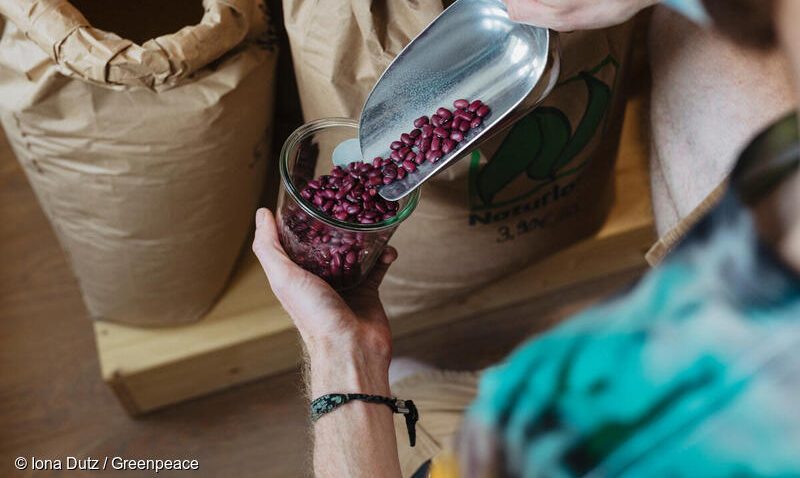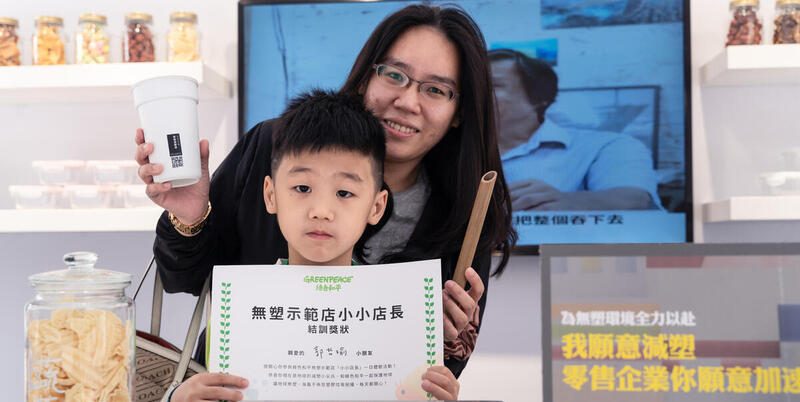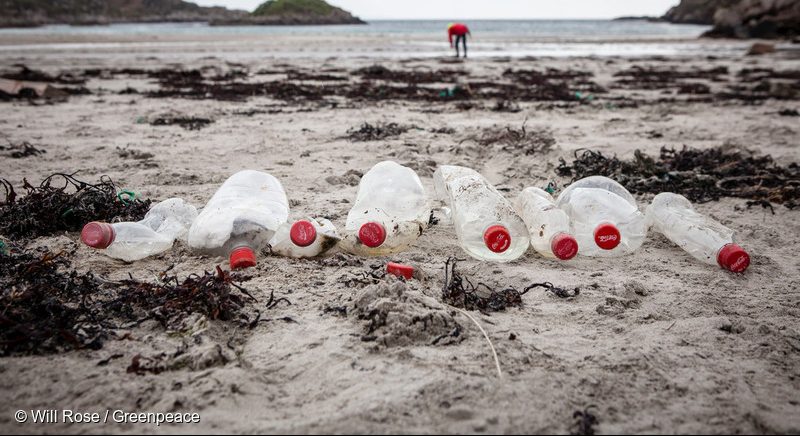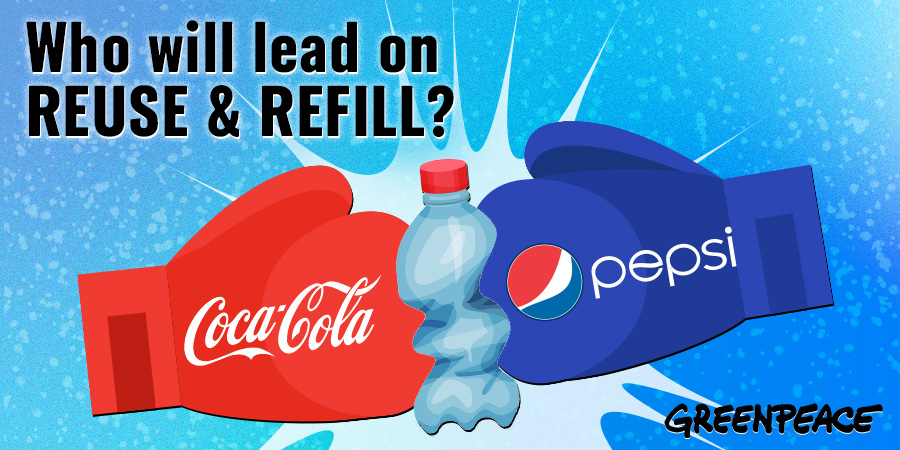Reducing plastic waste in our everyday lives is important, but it’s time to hold the real polluters accountable.
This Plastic Free July, join Greenpeace in turning up the heat on big brands.

Plastic Free July is back! Each year I look forward to taking on the month-long challenge to avoid as much single-use plastic as possible. Wouldn’t it be nice if Coca-Cola and Pepsi also joined this challenge (wink wink)?
Individual actions matter. But the entire system needs changing.
Those who have previously participated in Plastic Free July, which has been running since 2011, know there are some simple actions we can take to reduce our personal plastic footprint. It can be by bringing our reusable coffee cup to the cafe, taking our tote bags to the supermarket, and ensuring our refillable water bottle, like sunscreen and chapstick, is part of our essential summer kit. We’re all proud and excited to do our part and, rightly so, feel great knowing that we are making a difference.
But while these lifestyle changes are important, they only make a small dent in the enormous plastic problem we are facing. So while we’re all doing our best, even the most conscientious shopper among us will struggle to be 100 percent plastic free as single-use plastic packaging is seemingly everywhere and alternatives are hard to find. Throwaway plastic is also almost omnipresent in the fast moving consumer goods sector in the straws, takeout containers, soda bottles, and snack bags that we encounter as we go about our lives.
In Durham, North Carolina where I live, I’m very lucky to have a co-op with a bulk section, a robust farmers’ market with local, package-free produce, a package-free bulk food store, and a package-free soap and cleaning shop.

Greenpeace groups inform consumers all over Germany – here in Chemnitz – about ways out of the plastic crisis in pedestrian zones and in front of shopping centres.
These places are wonderful and I feel good when shopping at them because they help me make good choices for our environment. But most people in my country and around the world do not have package-free options for their products. It is nearly impossible for them to find essentials like shampoo, dish soap, and toothpaste that aren’t packaged in plastic.
Access to refillable, plastic-free options in our communities should be more than a “nice to have.” That is why we’re taking Plastic Free July a step further this year – we’re demanding that the corporations that produce most of our goods packaged in plastic switch to systems of reuse & refill. Companies like Coca-Cola, PepsiCo, Nestlé, and Unilever have been among the worst plastic polluters in the Break Free from Plastic movement’s global brand audits four years in a row.

Since 2019, Greenpeace has urged Taiwan’s key retailers, including PX Mart, Carrefour, FamilyMart, and 7-Eleven, to set up a comprehensive plastic reduction plan.
Holding big brands accountable for their plastic pollution
Last year alone, Coca-Cola produced a mind-boggling 125 billion plastic bottles, and given that only 9% of plastic ever produced has actually been recycled we know that the majority of those bottles will likely be incinerated, dumped into landfills, or wind up polluting our oceans and communities.

Greenpeace volunteers collect plastic on a beach in Mull.
In February, Coca-Cola became the first Big Brand to announce a commitment to make at least 25% of their packaging reusable or refillable by 2030. While this announcement was a step in the right direction, they need to do better and do more.
PepsiCo, Nestlé and Unilever, which currently have negligible amounts of reuse and refill in their packaging portfolios, have not made any public commitments to increase their use of those systems.
PepsiCo, has however indicated their intention to set a refill and reuse goal by the end of 2022. As we await that announcement, we remind PepsiCo that they have an opportunity here to better their long-time rival on an issue that impacts billions of people around the world.
Will Pepsi seize this moment and beat Coca-Cola in the refill and reuse race or will they come out with a weak commitment that underwhelms and disappoints us at the end of 2022?

This Plastic Free July, join Greenpeace in turning up the heat on big brands. Sign our petition and then download our Plastic Free July toolkit to continue taking action throughout July!
Happy Plastic Free July! May your month (and year) be filled with refillable, reusable, and sustainable options.
